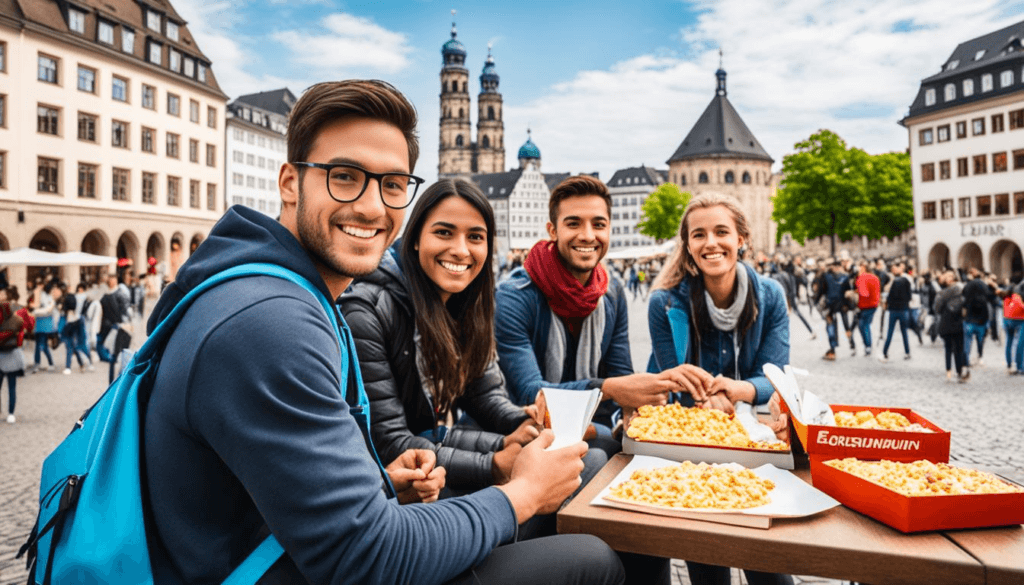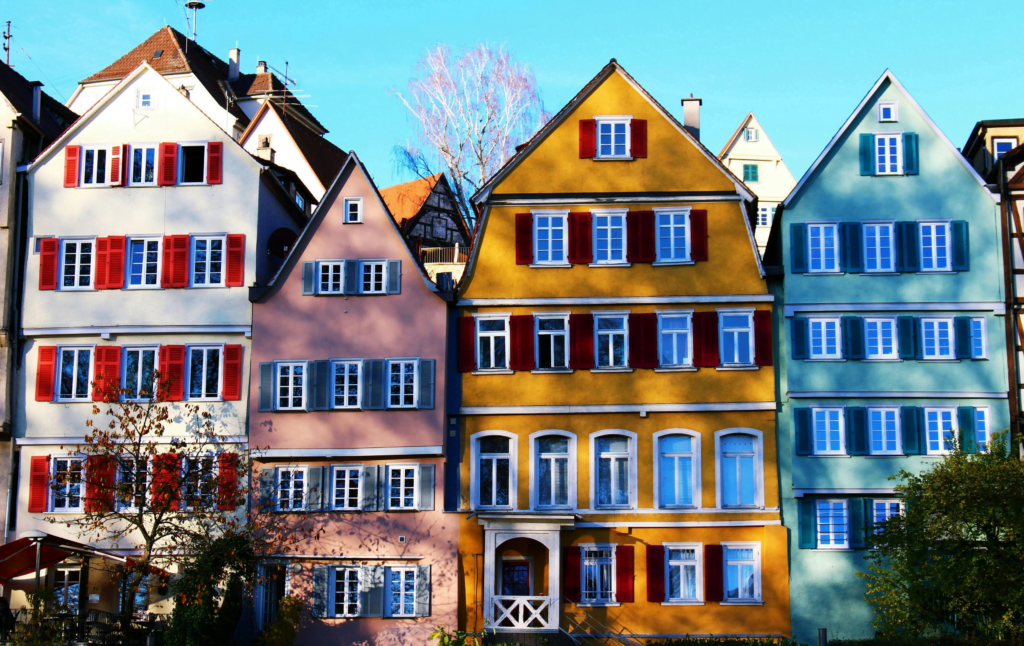
Germany is a country rich in cultural heritage, boasting a mix of traditional practices and modern experiences. As an international student, you’ll have a great opportunity to immerse yourself in its local culture beyond academic life. From festive celebrations to culinary adventures and historical tours, here are some unique cultural experiences you shouldn’t miss while living in Germany.
1. Explore Traditional Festivals and Events
Germany is known for its lively festivals, most of which revolve around centuries-old traditions. Attending these events will give you insight into the heart of German culture. Here are a few must-see festivals:
- Oktoberfest (Munich): This world-renowned beer festival, celebrated in late September to early October, offers more than just beer. It’s also a celebration of Bavarian culture, featuring traditional clothing (lederhosen and dirndls), parades, music, and food like pretzels, sausages, and roast chicken. Even if you’re not in Munich, many cities hold smaller versions of Oktoberfest.
- Christmas Markets (Weihnachtsmärkte): Visiting a Christmas market during December is essential to experiencing German winter magic. These markets are found in every town, selling handcrafted goods, festive decorations, mulled wine (Glühwein), and gingerbread. The markets in Nuremberg, Cologne, and Dresden are particularly famous.
- Karneval (Carnival): The Carnival season in February is a colorful celebration with parades, costumes, and street performances. Cologne hosts one of the biggest Karneval festivals in Germany, but other regions like Düsseldorf and Mainz also offer exciting events.
- Easter Traditions (Ostern): Easter in Germany involves not only religious celebrations but also fun customs such as egg painting and Easter egg hunts. Many cities host spring fairs around Easter, where students can enjoy traditional food, games, and entertainment.
2. Discover Germany’s Culinary Diversity
German cuisine varies by region, giving international students the chance to enjoy an array of tastes and flavors. Make sure you try the following regional foods during your stay:
- Currywurst: This iconic street food, made of sliced sausage topped with curry ketchup, is a must-try in cities like Berlin.
- Bratwurst and Sauerkraut: A typical German meal often includes sausages with a side of fermented cabbage (sauerkraut). Franconia and Bavaria are known for their own unique sausage varieties.
- Pretzels (Brezeln): You’ll find pretzels in every bakery, but the ones served at Oktoberfest and in the south are extra special.
- Doner Kebab: Interestingly, the popular Doner Kebab, now a staple of German street food, was popularized by Turkish immigrants in Berlin.
- Regional Breads and Pastries: Germany takes pride in its bread culture, with hundreds of varieties of bread (Brot) and pastries. Try a Berliner (a type of jam-filled doughnut) or a slice of Black Forest Cake (Schwarzwälder Kirschtorte).
Participating in local food events such as wine festivals, food markets, and beer tastings will also broaden your culinary experience.
3. Visit Castles and Historic Sites
Germany is known for its fairy-tale castles, medieval towns, and historical landmarks. These places are not only picturesque but also reveal fascinating stories from the past.
- Neuschwanstein Castle: Often referred to as the inspiration for Disney’s Sleeping Beauty castle, Neuschwanstein in Bavaria is a dream-like destination nestled among the Alps.
- Heidelberg Castle: Located in one of Germany’s oldest university towns, Heidelberg Castle offers breathtaking views and historical significance.
- Berlin’s Historical Sites: A visit to Berlin isn’t complete without seeing iconic landmarks such as the Brandenburg Gate, the Berlin Wall, and the Holocaust Memorial. You’ll also find world-class museums on Museum Island.
- Rothenburg ob der Tauber: This medieval town looks like it’s straight out of a storybook, with half-timbered houses, cobbled streets, and Christmas shops that operate year-round.
- Cologne Cathedral (Kölner Dom): This UNESCO World Heritage site in Cologne is one of the largest cathedrals in Europe and an architectural marvel.
Exploring these historic places will give you deeper insights into Germany’s evolution from its medieval roots to modern times.
4. Immerse Yourself in the Art and Music Scene
Germany has a vibrant art and music scene, offering something for everyone, from classical enthusiasts to lovers of contemporary art.
- Classical Music and Opera: Germany is home to famous composers like Beethoven, Bach, and Wagner. You can attend classical concerts and opera performances at renowned venues like the Berlin Philharmonic or the Semperoper in Dresden.
- Electronic Music Clubs: For those who enjoy nightlife and contemporary music, Berlin is known for its underground techno scene. Clubs like Berghain attract music lovers from around the world.
- Street Art and Galleries: Explore the street art culture in cities like Berlin, especially in areas like Kreuzberg. Additionally, museums such as the Alte Pinakothek in Munich and the Städel Museum in Frankfurt showcase a variety of art styles from Renaissance to modern.
- Film Festivals: If you love films, consider attending the Berlinale (Berlin International Film Festival), one of the largest and most prestigious film festivals in the world.
5. Experience the Outdoors and Nature
Germany offers a diverse landscape, from picturesque rivers and dense forests to towering mountains. International students can take advantage of outdoor activities during all seasons.
- The Black Forest (Schwarzwald): This forested region in southwestern Germany is ideal for hiking, cycling, and skiing. It’s also famous for its cuckoo clocks and Black Forest Cake.
- The Rhine Valley: A boat trip along the Rhine River offers scenic views of vineyards, castles, and charming towns. The Middle Rhine Valley, a UNESCO World Heritage site, is particularly beautiful.
- The Alps: If you enjoy skiing or snowboarding, the Bavarian Alps offer excellent winter sports opportunities. During summer, the Alps are perfect for hiking and exploring lakes like Königssee.
- The Zugspitze: Germany’s highest peak, located on the border with Austria, offers breathtaking panoramic views. You can take a cable car to the top or hike if you’re feeling adventurous.
Germany’s many parks, lakes, and national parks also offer places to relax, picnic, and enjoy the changing seasons.
6. Understand German Customs and Traditions
Immersing yourself in the local culture involves understanding everyday customs and social etiquette. Here are a few essential tips to help you integrate smoothly:
- Punctuality: Germans value punctuality, so being on time is considered a sign of respect. Whether you’re meeting friends or attending class, try to be punctual.
- Recycling Culture: Germany has a strict recycling system, and it’s important to follow waste-sorting guidelines. Pay attention to color-coded bins for different materials like plastic, glass, and paper.
- Cash Payments: Although card payments are becoming more common, many small shops, cafes, and restaurants still prefer cash (Bargeld).
- Respect for Quiet Hours: Germans value peace and quiet, especially during designated quiet hours (Ruhezeit), usually from 10 PM to 6 AM and on Sundays. Be mindful of noise levels during these times.
- Learning the Language: While many Germans speak English, learning a bit of German will greatly enhance your experience. Simple phrases like “Guten Tag” (Good day) or “Danke” (Thank you) can go a long way.
7. Join Student and Cultural Exchange Programs
Participating in student organizations and exchange programs is a great way to connect with locals and other international students. Many universities in Germany offer cultural exchange events, language tandem programs, and excursions to nearby attractions. You can also join student clubs that focus on sports, music, arts, or politics.
Additionally, institutions like the Goethe-Institut organize cultural events, workshops, and language courses that promote cross-cultural understanding. Attending these events will not only help you meet new people but also provide opportunities to engage deeply with German culture.
Final Thoughts
Living in Germany as an international student offers more than just academic learning. From attending festivals and exploring historic landmarks to enjoying regional cuisine and outdoor adventures, there are countless ways to immerse yourself in the local culture. By participating in these experiences, you’ll gain a deeper appreciation for Germany’s traditions, values, and way of life—making your stay even more memorable.


